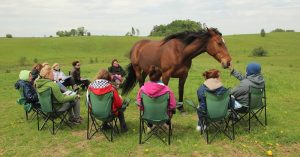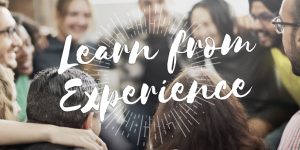Experience & learn
INNOVATIVE METHODS OF WORKING WITH YOUTH
Here are the 5 methods that were included in VIAME project. Click on chosen picture to see a detailed description or choose a method from a main menu of page navigation.
By Atalaya Foundation
It encompasses action, improvisation as well as taking on and fully committing to roles. It’s a method of self-development that engages the youth on three levels: physical (body movement, senses), emotional (engaging emotions) and intellectual (discussions, feedback, drawing conclusions, activating participants’ knowledge).
By Atalaya Foundation
A method in which people work together with horses. Its aim is to deepen individual development, self–awareness and emotional and social skills, as well as to help participants achieve the change they desire. The way a horse relates to us is absolutely authentic, which means we are experiencing a genuine relationship, communication and leadership.
by Ljudska univerza Radovljica
Project Learning of Young Adults was designed by Slovenian Institute for Adult Education. The programme includes young people who dropped out of regular school and has been proven to be highly effective. As participants actively engage and decide on the course of the programme, the motivation to participate and to continue education is strengthened. Learning through projects along with individual work, gives good results.
By University of Porto
It is based on a deep curatorial process, which enables the assertive invitation to creators and artists to develop projects in site-specific, participative, community and educative, building bridges, making connections, integrating and accompanying them throughout the process of work with the local public.
by Látótér Alapítvány
The SSCA method and its techniques improved for photography demonstrate a way of thinking that enables uncovering the personal and hidden messages of the target group’s visual communication. This also provides an opportunity to design such tasks that facilitate individual goal completion.







